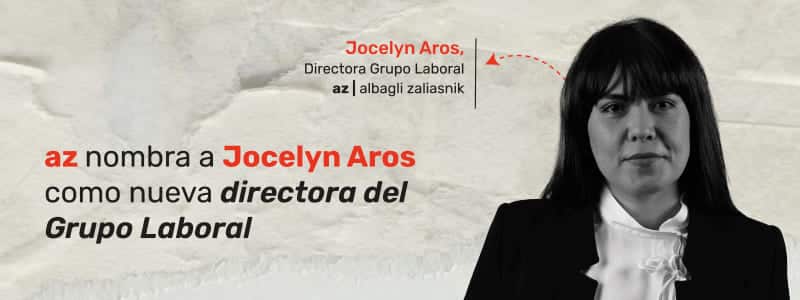Our senior associate of the IP, Tech and Data Group, Carlos Lazcano, talked to LexLatin about digital piracy, addressing the keys to deal more effectively with this type of infringement in our country.
In Latin America, online piracy of audiovisual content causes losses of up to 872 million dollars.
Piracy is one of the biggest scourges faced by any trademark holder, creator or companies owning “piracy-prone” materials (such as software developers or audiovisual production companies, for example); in other words, almost the entire productive apparatus. Even so, and despite the fact that at least online piracy causes losses of billions of dollars (in Latin America alone, online piracy of audiovisual products causes losses of up to 872 million dollars for the content industry, according to a report by cet.la), some countries have a certain “tolerance” for acts of piracy.
For example, in Canada, Hungary, Switzerland and South Africa you can download content freely, but it is forbidden to “seed” it (upload it to any site or server); in Poland you can own or pirate material as long as it is for personal use, under “permitted/fair use” (dozwolony użytek). And, in short, in many countries there are no anti-piracy laws -or, if there are, there is the practice of “looking the other way” before deploying efforts to repress it-, it is in a gray area or there is no solid enforcement (Latin America has a dubious place of “honor” in this matter).
Faced with this, initiatives such as Operation 404, a joint international effort against digital piracy, driven to form a large team of experts and authorities from the EUIPO, United States, United Kingdom and local authorities, make a difference: this September (in its seventh raid), it blocked thousands of illegal websites and applications, reinforced in Argentina, Brazil, Paraguay and Peru, with the execution of hundreds of search warrants and the seizure of equipment used to download and distribute digital material such as movies, series, music and software.
The seventh edition of this international anti-piracy effort also resulted in the dismantling of IPTV and online content distribution networks, in addition to the blocking in Argentina of all sites related to Magis TV, one of the largest IPTV platforms in Latin America that, through its application, gave illegal access to private content, such as the most popular streaming platforms, international TV channels and paid sporting events, such as those of LaLiga… By the way, Magis TV “died”, but in a similar twist to the “dead king, new king” those who had access to it now have access to its successor: Flujo TV, at least outside Argentina.
Operation 404 (part of EUIPO’s IP Key Latin America project) also made progress in Brazil, where more than 30 search warrants were executed and 675 sites and 14 applications were blocked. The Operation’s goal is to constantly explore more advanced technologies for the detection and removal of illegal online content and to impose strict policies against content piracy, which so affects the global creative economy.
Although most anti-piracy voices claim that piracy harms legitimate owners or distributors of pirated material, especially those in the creative economy, which is the one we will focus on, by causing them to lose much of their profits, in reality, a 360,000 euro study commissioned by the European Commission and prepared by the Dutch firm Ecory found that piracy has little impact on protected content and that there is “no statistical evidence of displacement of sales by online copyright infringement”.
In a twist, the same report specified that, in certain cases, digital piracy can increase the sale of material, primarily video games.
What does the law say?
Added to this is another fundamental fact (and here we move away from the TV industry a bit): it is usually (or should be) more important that people have free (or easy) access to certain content. Granted, no one may really need to have free access to, say, a blockbuster or the recent Silent Hill 2 remake, but they definitely should have free access to educational material.
So here it is worth asking, what about the right to free access to information or reference documents that is sometimes hindered, especially by companies or right holders? Where does the line blur between the right to learn and the right to demand payment? Can it blur? Can the need and the right to charge be balanced?
Well, the answer comes from Carlos Lazcano, senior associate at Albagli Zaliasnik, who recalls that, in Chile, the right to education is fundamental and is protected in the Political Constitution of the Republic (article 19); “however, this right must be balanced with the recognition of intellectual property rights, which seek to encourage the creation of content by granting authors an economic retribution for such content”.
This means that, for Chilean laws, there is a fair balance between both rights; for example, Article 71 letter M of Law No. 17.336 (Law on Intellectual Property) allows the reproduction and translation of fragments of works for educational purposes, without remuneration or obtaining authorization from the author, but without losing sight of the limits and respect for copyright.
“In this way, the right to education is safeguarded without harming the rights holder, since the norm refers to “fragments” of works and excludes school texts and university manuals”, he explains.
What about repositories and libraries?
One of the arguments in favor of copying material for research argues that scholars and historians sometimes have few resources to document works, so part of their work sometimes involves copying material from third parties to study or preserve it (such as discs, video games, movies, software or out-of-print books), how to stop the loss of heritage and knowledge when there is no free access to certain works?
Camila Garcindo Dayrell Garrote, senior associate at Demarest, points out that this question has been debated by organizations such as Unesco and has been included in the ebook Gestión de la propiedad intelectual en los museos (Intellectual property management in museums), published by WIPO. For both organizations, memory institutions (museums, libraries and others) should establish selection, collection and preservation policies through research and consultation, guided by internationally established and defined standards in relation to the documentary heritage of their countries, especially those at potential or imminent risk, and bring it to the attention of the competent bodies capable of taking appropriate preservation measures.
Such measures should be reinforced with policies, mechanisms and criteria for the acquisition of such documentary heritage, legislative frameworks, training and the establishment of partnerships to facilitate access to such works, including paid ones.
“Such measures are important to preserve national culture and knowledge, and countries are urged to consider their documentary heritage as an invaluable asset and to implement this perspective in national legislation, policies and development agendas,” she specifies.
Lazcano agrees with her. For the Chilean specialist, the loss of heritage and knowledge can be addressed by promoting preservation initiatives that respect intellectual property rights. Furthermore, the loss of cultural heritage, when there is no free access to certain works, could also be avoided by developing, promoting and implementing strategies aimed at ensuring that valuable works are available for the learning and inspiration of future generations, recalls Ángela Fernández.
…but there are still pirates online
These proposals are appropriate when it comes to the preservation and distribution of knowledge, which is -by all means- a laudable task, but there is still a fundamental problem: people pirate content, use illicit applications or pay for services that provide them with access to paid material, such as Magis TV or Fútbol Libre (both closed by the Argentine justice system), which are enemies of entities such as LaLiga, dedicated to fight them, for making available to large audiences their matches broadcast only for subscribers.
Piracy, like any human act, did not arise by spontaneous generation; on the contrary, it is related to the massive access to the Internet; the use of technologies such as IPTV, which offer significantly lower prices, as they do not pay licenses for the content they distribute, and the difficulty to investigate and punish these illegal activities, for which Operation 404 was created.
Carlos Lazcano, an expert on the Chilean scene, considers that there are aspects that could be improved in his country to combat piracy. Firstly, updating the Intellectual Property Law, to address more specifically infringements in digital environments, “including clear definitions on the responsibility of intermediaries, such as illegal streaming platforms” and providing greater resources to effectively monitor and punish these crimes, while promoting international cooperation to dismantle transnational networks operating in this area, given that the problem transcends borders.
“It is important to involve stakeholders in the updating process, I consider it a joint task that can lead to the creation and development of strategies aimed at curbing piracy”, he concludes.
Source: LexLatin, November 27, 2024.



